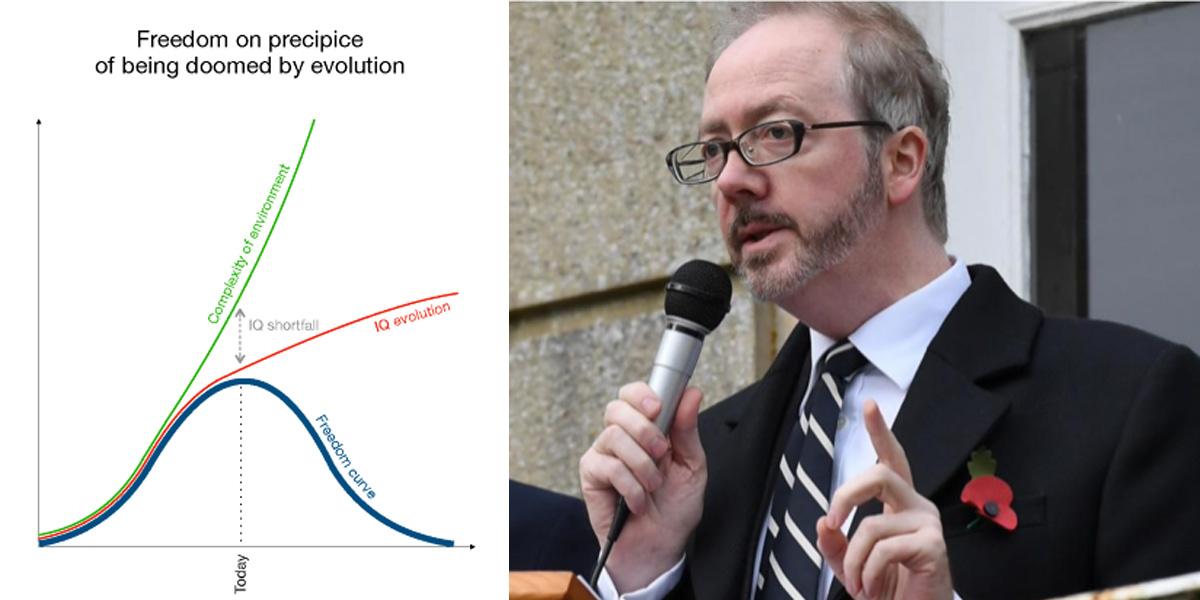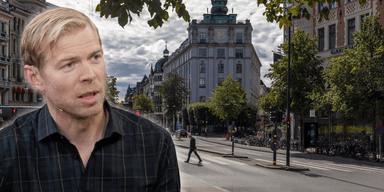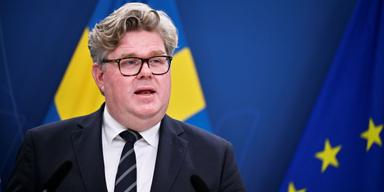How can we explain our collective inability to make the world a better place after all these centuries of so-called civilisation?
Homo Non Sapiens – our species is on the edge of being doomed by self-made complexity


Mest läst i kategorin
Democracy is the fairest system but dictatorships are in the ascendant. Even democracies elect quasi-dictators who don’t work in the people’s interests. The the world’s largest democracy is about to be led by a person who had publicly admitted that he admires a menu of dictators. Meanwhile, nations are polarising between the free and the ‘unfree world’. Yet the free world doesn’t have the will to defend its freedom and lacks leaders able to cure the apathy.
The answer is that human beings are confused by a world that is too complex. Democracy’s promise of delivering the right decisions rings hollow if the voters cannot make the right decisions themselves. Every topic on which people are expected to have an opinion and influence their government is confused by leaders presenting limitless arguments on different sides, by fake news, and by algorithms that manipulate opinion.
On top of that, people are now expected to consider hundreds of issues. The scope of what we are informed about has grown from what was going on in the cave or village, to the issues of the entire world. Meanwhile, as the world speeds up, people have less time to think. So, more to decide, with more noise, and less time: three dimensions of pressure on our bandwidth.
Evolutionary shortfall
The theory of evolution is that, to survive, a species must change with the environment. Greater complexity requires more powerful brains to make the right decisions, and deeper intuition to know when we are being tricked by manipulative leaders or algorithms. The problem is that evolution takes a long time. If the environment changes too fast, we will end up no differently than dinosaurs.
If our brains had been able to grow faster, we could solve this super complexity and make the right decisions to organise the world for collective benefit and keep it fit for human habitation.
Instead, we are facing a widening ‘evolutionary shortfall’ between the growth in environmental complexity and the speed at which we can evolve skills to figure it out.
Although the brain of Homo Sapiens has grown, it has used its new brain and cumulative knowledge to create a puzzle that is bigger than its brain, and a puzzle that’s exponentially more difficult to solve, while we evolve at a snail’s pace. It is ironic that the most intelligent species in the history of the planet has made its own environment so complex that, in relative terms, it has become stupid.
Every species that has become extinct was faced with changes to the environment that were not its own making. If we become extinct, it will not be from an asteroid arriving from outer space because we are the asteroid. We are a fish out of water that has dried its own pond. To survive, we are going to need to move pretty fast.
Senaste nytt
Extinction dynamics
An inability to cope with environmental change matters in practice when it involves existential risk. Global warming is one and global conflict another. Either can easily reach a point of no return. Our species is playing Russian roulette with two bullets and we don’t have many empty chambers left.
The potential of totalitarian regimes, principally China, to deliver economic efficiency superior to that of the free world, to fund their military – combined with their will to hold onto and expand their power – threatens our freedom. This is the trajectory we are on.
The free world still has the economic, technological and military power to protect its own freedom, and perhaps eventually to bring freedom to those without it. However, it doesn’t have the willpower to use its power. This is because complexity hides the quantum and irreversibility of the risk.
While our heads are in the sand, China is buying time to become economically and technologically stronger. This will make it increasingly more difficult for the free world to refuse to trade. China’s endgame is for Sleeping Beauty to wake up only to discover that the totalitarian nation has grown such a large internal market that it can live alone, to a degree that we would be the net loser from a total economic break.
The world is complicated for dictatorships too, but they don’t need to balance a myriad of conflicting opinions while they take decisions for their survival. It is easier for a dictator to form a well-calculated and unified strategic plan, and then drive it through.
The unfree world is positioned to win the impending battle for survival of the fittest. If we don’t wake up and act fast, we will have to face the lose-lose dilemma of fighting for freedom with nuclear stakes or giving up the ghost.
Falling off the freedom curve
Our species has reached the top of the ‘freedom curve’ and is about to step over the precipice. We had successfully climbed it while our brains and cumulative knowledge grew.
Now the confusion side effect of this progress is undermining our ability to elect democratic governments fit to compete with dictatorships. The ‘freedom honeymoon’ is coming to an end and we are about to head down the dark side of the curve into a world looking like a time before the advent of democracy, the only difference being that we will be subjugated by state algorithms rather than spears.
However, we don’t need to react like ostriches or lemmings; we are human beings of a fortunate kind, still free and with the cards in our hands.

***
In short, Homo Sapiens is already extinct. The new species that we have become is Homo Non Sapiens. We might be smarter than other species. We might be smarter than we were a hundred thousand years ago. However, we are not smarter than the monster we have created.
Whether it is Homo Non Sapiens or its ability to live freely that next becomes extinct is arguably a detail. The stakes of either could not be higher and our mental ability to intervene hardly lower.
There is no easy solution for a species that has cooked its own goose:
A ‘freedom sell-out’ wouldn’t work because that would destroy the essence of what human beings have achieved.
A ‘let them revolt’ remedy – in the hope the unfree world will democratise itself without our help – looks like wishful thinking due to the optimisation of state control, itself enhanced by technology’s progress.
A ‘Luddite’ strategy isn’t feasible because you can’t put the double-headed genie of technology and information overload back into the bottle – not least, in the case of AI, because curtailing it in the West would only let totalitarian regimes weaponise it unilaterally.
Our best hope of extending the freedom honeymoon into a permanent relationship with liberty is to elect Western leaders who can translate complexity into plain honest language, and articulate a compelling ‘freedom preservation plan’ to quickly confront the enemy with every resource and resolve. We need a new type of politician – a ‘truth-seller’ – to bring the truth alive and inspire the work that it implies. Otherwise, we may witness the extinction of our species as we know it, or of it entirely.
Mark Dixon
Mark Dixon founded and runs the Moral Rating Agency (moralratingagency.org), which fights dictatorships by exposing their supporters in the West. The MRA’s current project involves “getting companies out of Russia, to get Russia out of Ukraine, Putin out of Russia, and dictatorships out of the world”.















